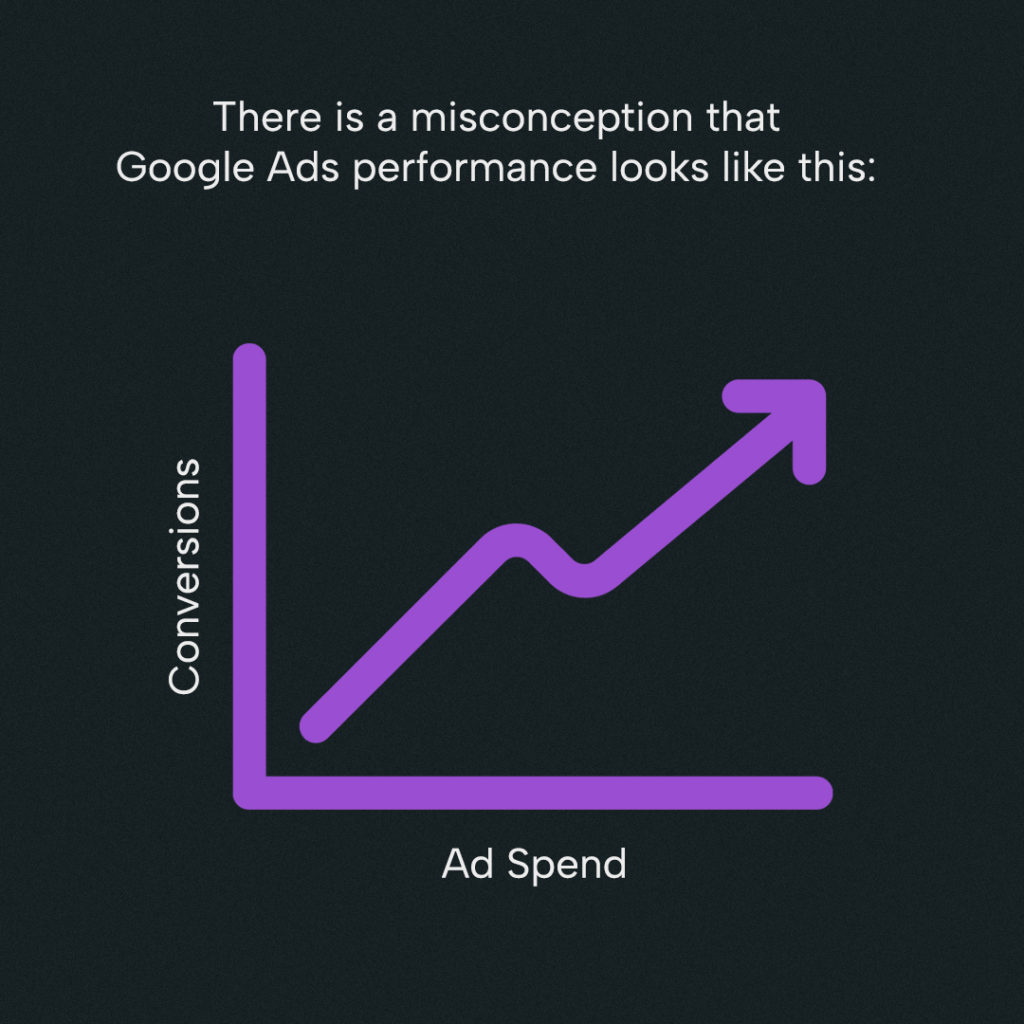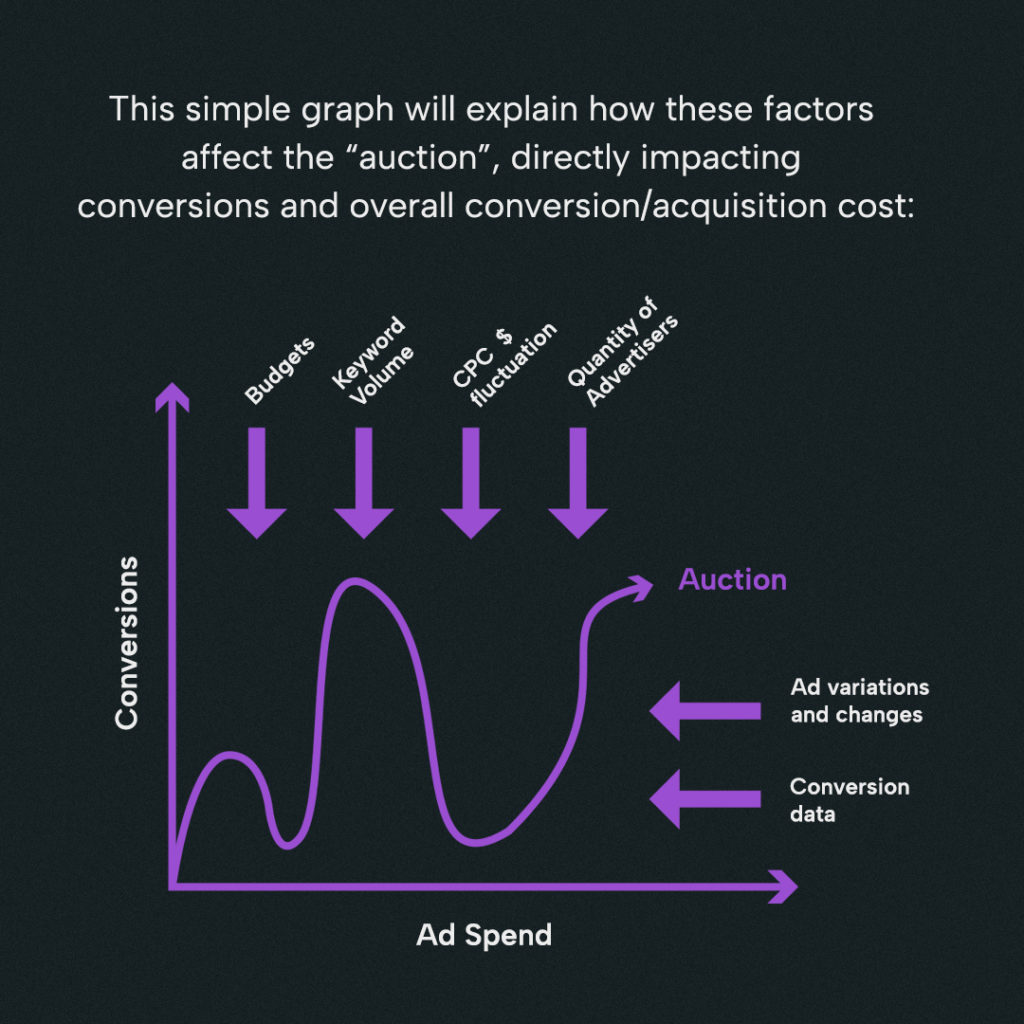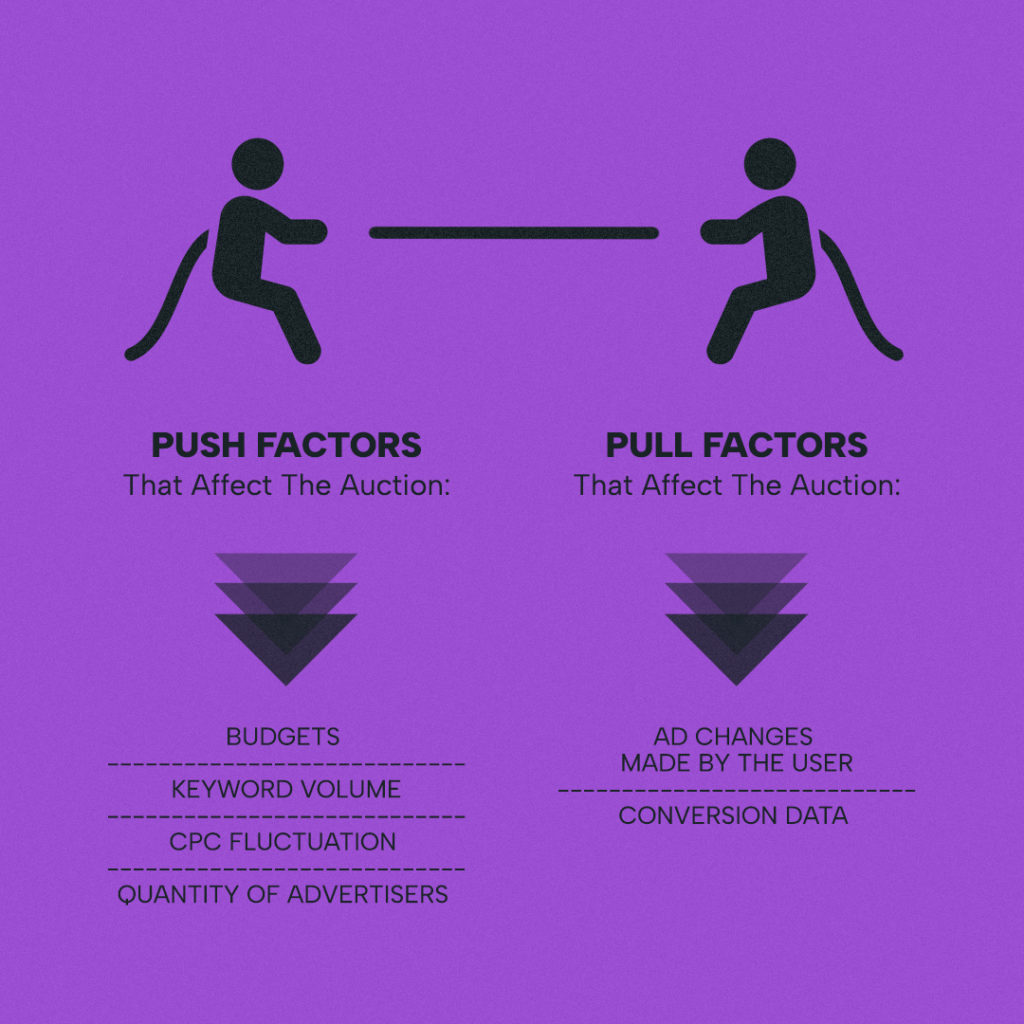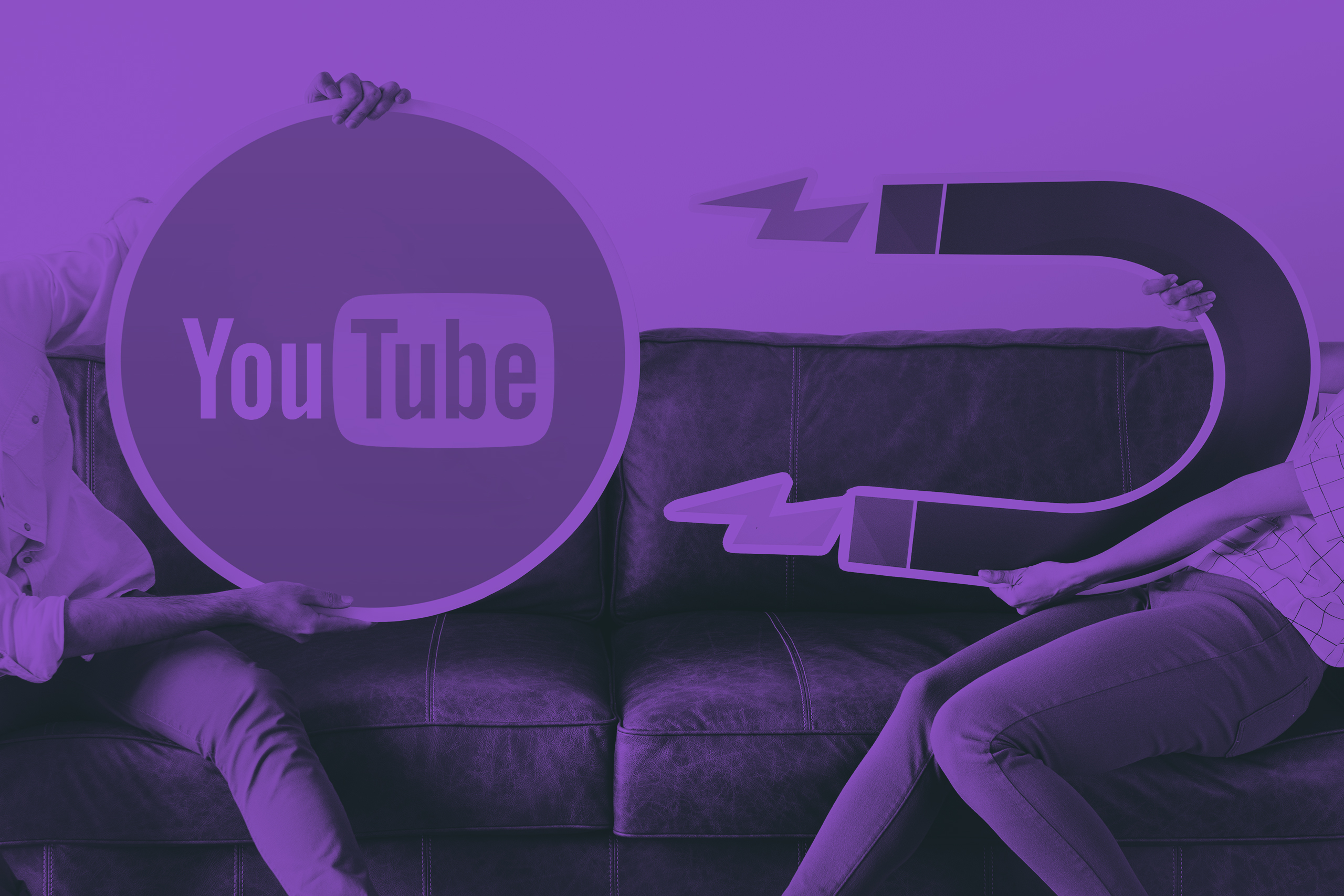Nine times out of ten, when I sit on a call with a prospective customer, I find that the #1 reason that people get frustrated with Google Ads, is due to issues related to scalability.
In this article, we will deep dive into why scaling Google Ads is remarkably difficult and why we here at Yugo Media consider ourselves the perfect partner for b2c and b2b businesses looking to safely scale their customer acquisition with Paid Media such as YouTube Ads and Google Ads.
Google Ads has become increasingly more complex to scale successfully, and the core optimization principles of paid media are often overlooked. This leads to frustration and often abandonment.
I will try to provide a deeper insight into why Google Ads can be harder to scale effectively than expected. We have scaled accounts from $3,000 a month to north of $100,000, but it takes an approach that accounts for the nuances of Google Ads such as understanding the buyer journey, identifying user intent, interpreting bidding signals and empowering brands with video.
Google Ads Bidding Affects Keyword Performance and Campaign ROI
When it comes to search campaigns that target CPA or ROAS, spending more doesn’t always mean more conversions, and it doesn’t always mean more clicks.

And even some people will refer to Google Ads and other Advertising platforms as a “funnel”, it isn’t exactly a funnel.
Google Ads (outside of smart campaigns) which is a whole other subject, is ultimately a digital auction. This auction is between advertisers and publishers who are bidding on search terms and positions.
Auctions are not linear. They are dynamic.
There are multiple “pull and push” factors in the Google Ads auctions, that make conversions not linear with ad spend.

Finding Conversions and Dealing with The Auction
Specifically, keyword bidding is not as linear as it is advertised to be, and sometimes predicting the flow of traffic/volume/conversions is difficult or practically impossible. Here are some of the ways that the Google Ads bidding system (the auction) can affect keyword performance and overall campaign ROI:
- Engagements such as clicks and conversions are not consistently a direct % of your spend, they are dictated by a very dynamic auction between multiple advertisers and publishers.
- These pull and push factors to change as the auction changes, this makes the data often skewed.
- Ad impression share is managed by Google depending again on the number of auction participants and available search volume.
- Conversion data that is fed back into the algorithm is often not accurate due to the user making campaign changes. If campaign changes are made on a live campaign therefore the conversion data fed into the campaign is from earlier campaign settings and can disrupt the campaign's “conversion pattern”. These can lead to campaign status “learning” and a significant drop in performance or increase in target CPA.
- Search terms that are added as keywords do not perform the same and will most likely cost more with fewer conversions. Phrase and exact match keywords are more expensive as search terms triggered by another Ad.
I often see advertisers focus on maximum impression share to resolve some of the points mentioned above. This so-called “strategic move” basically tells the auction, “hey I want to show my ad 100% of the time, irrespective of the cost, schedule, participants and search volume!” This is probably the most inefficient bidding alternative and leads to skyrocketing CPA and a huge drop in ROI.
Push Factors That Affect The Auction:
- Budgets
- Keyword volume
- CPC fluctuation
- Quantity of advertisers
Pull Factors That Affect The Auction:
- Ad changes made by the user
- Conversion data

There are potentially more push and pull factors that affect the auction and campaign performance, the ones mentioned are directly from my personal ad management experience here at Yugo Media!
How Keyword Match Type Affects Bidding: Broad Match vs Exact Match
So you may be thinking, doesn’t this just come down to the match type of the keyword and max conversions? Well, the answer is no. Broad Match, Phrase Match and Exact Match perform very differently given how they are used in a campaign. And bidding strategies and keywords should be analyzed as silos; as pointed out, they are not linear.
Broad Match: if you add keywords as target queries, broad match allows Google to target queries related to the keyword intent. This can often lead to lots of irrelevant search terms that have triggered your Ads. This is definitely the obvious downside to Broad match, but this can be easily combatted by having extensive negative keyword lists.
The benefit of using Broad match keywords is that you are ultimately giving the Google algorithm more space to serve your ads to more searches, therefore, learning more about your target buyer persona and finding conversions accordingly.
Exact March: adding keywords with an exact phrase combination that matches the exact same query. This match type is extremely auction-sensitive, as you are instructing Google on exactly what keyword you want to appear for, and that your highest priority is the match type.
The upside to this is the quality of the engaged traffic due to the exact match of query, but the downside is skyrocketing CPC and very little exposure to traffic, as the keyword CPC could be a large proportion of your daily budget. Therefore this leads to limited conversion data and underutilizing of the conversion algorithm.
The reason why match types are such an important “pull and push” factor to the bidding signals is that Google’s ultimate goal is to serve its clients (the advertiser) with conversions. Therefore, the more restrictive the search term is, the more difficult it is for the algorithm to optimize the bidding strategy to fulfil the goal of the campaign which could be target ROAS, target CPA or max conversions.
Google Has More Data On the Search Volume and Searcher Intent
Google Ads as a PPC platform is designed on data. Data is king, and the more data Google accesses in the account through the campaigns the better the campaigns should technically perform. Not to mention retargeting and audiences (which is a whole other subject, I will publish my perspectives on this soon)!
As mentioned before, often user interaction on the account can change the performance of the campaigns. Therefore this leads to dynamic and unpredictable performance.
Google Ads bidding works favourably when data is prioritized. Here are 3 ways to leverage data when serving Ads to audiences:
- Maximize conversion data: the more Google knows about your conversions the better
- Don’t mix keyword match types within the same campaign: this confuses the algorithm and conversion data
- Divide keyword intent, and volume by ad groups: create limited Ads for each ad group
Ultimately this comes down to the conclusion that the more volume of data Google has the better the algorithm will perform and the more likely the auction will be less dynamic allowing better forecasting and flow of revenue opportunity.
Is Exact Match Dead?
If you are reading this and thinking, well Jason, you are basically saying to move to broad match, focus on getting conversion data and slow down massive changes that disrupt and confuse the algorithm.
Then is the exact match dead? No no! The exact match is not dead. Quite the opposite, It’s alive and kicking!
The reality is that few accounts when starting out have the budget or previous conversion data to focus on exact match exclusively.
Exact match has many benefits and amongst them is the ability to test and validate the right keywords with the audiences to nail your searcher intent! But the downside is the average cost per click is 10x more expensive than other match types.
Ideally, use an exact match for keywords that you have tested, and know convert and make it part of an integrated strategy that accounts for your budget, campaign goals and buyer persona.
Conclusion
Google Ads has many nuances and the more you learn the more you realize how much there is yet to discover. Factors such as bidding, auctions, and user intent can be quite daunting when setting out your Google Ads journey. We believe that consistency, data and hard work pay off! Create well-structured campaigns, learn from the data that you can pull from Google Ads and make sure your attribution is on point to not lose any conversion data! Minimize campaign bidding and strategy changes, and plan your campaigns thoroughly before starting out to avoid mishaps.
Remember, the data is the key to scaling.
FAQS For Scaling Google Ads:
Can you scale Google Ads sustainably with a reduced budget?
You can start your Google Ads with a reduced budget, but bearing in mind competition and industry context scaling Google Ads without a reasonable budget will be difficult. We recommend accounts that are looking to scale have a monthly ad budget of $5,000 to start out and can commit to a 90 days campaign plan.
How to identify Google Ads bidding issues?
The best way to identify bidding issues is by looking at the status of the campaigns (learning phase, eligible, limited etc) and then looking at your impression share. If the Ads are not running at their full potential then it is highly likely the campaigns are restricted by bidding issues.
What is the best budget for starting Google Ads?
There isn’t “best budget”, but we recommend doing industry research and looking at what your competition is spending to get an idea of keyword volume, average keyword cost and calculating the amount of ad budget needed to start Google Ads on the right foot!
What to do with search terms that convert but are not added as keywords?
When observing a performing search term, we recommend you keep them as search terms and do not make them keywords. If in the rare case that the volume is substantially larger (more than 5 times more than the nearest search term) then you can create a unique ad group with this keyword.
When to exclude search terms that are not converting?
If the search term has received a certain amount of clicks and has not converted at the average conversion ratio of the campaign and account, then it would make sense to exclude them as they are underperforming and will negatively impact the campaign ROI.







